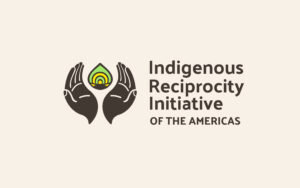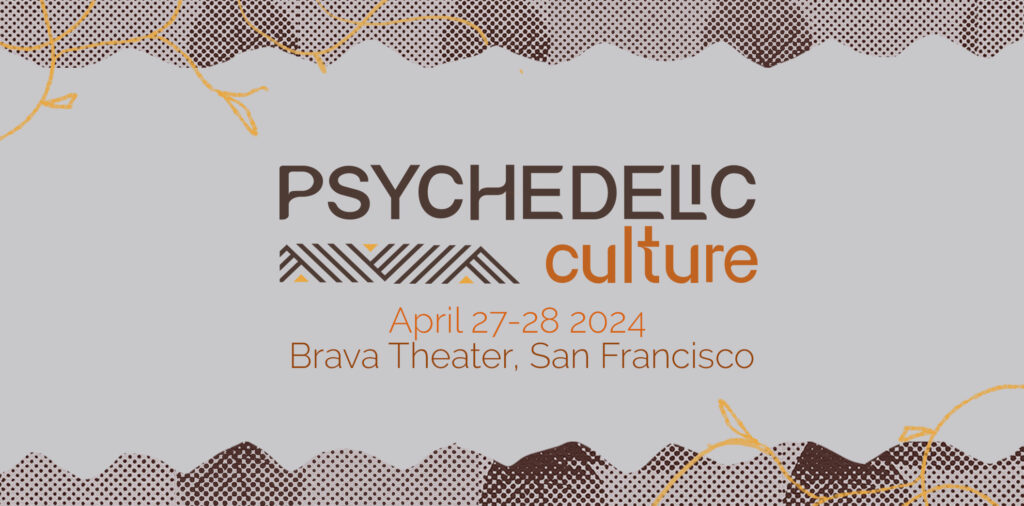- 2024 Begins with Trepidation in Psychedelic Medicine and Markets - January 26, 2024
- This is How Jurema, a DMT-Containing Tree, Helped the Pankararé People Recover Their Land in Brazil - December 29, 2023
- The Triumphant Comeback of Psychedelics - July 24, 2023
New clinical results are bound to be overshadowed by million-dollar corporate moves, though
It only took one week after New Year’s Eve for a barrage of developments related to psychedelic research and markets to hit the news. The most important developments, from the perspective of this author, come from the clinical area, but those involving companies and hundreds of millions of dollars are bound to cause more noise.
Starting with what matters most, it is worth highlighting a new attempt by Dráulio de Araújo’s group at the Brain Institute of the Federal University of Rio Grande do Norte (ICe-UFRN, in its Brazilian acronym).
Just before Christmas, the journal European Neuropsychopharmacology1 published the first article from their Dunes Project investigating the antidepressant effect of dimethyltryptamine (DMT) extracted from jurema-preta and applied by inhalation. That work dealt only with the initial pilot experiment with healthy volunteers, which suggested the efficacy and safety of this route of administration.
Then the ICe team released on January 4th the preprint (i.e. a paper with no peer review) of the evaluation of six patients with treatment-resistant depression who underwent experimental therapy with inhaled DMT, which was deposited in the MedRxiv open repository.2 Good news: the antidepressant effect was immediate and, after a week, four of the six volunteers were in remission.
Find more information on the upcoming Psychedelic Culture Conference.
The authors compared these results with two other similar studies. One of them tested DMT for depression in seven participants, but administered intravenously, with the psychedelic effect lasting up to 30 minutes (inhaled, the effect wears off in 10-15 minutes).3 Another difference: this other trial did not involve psychotherapeutic support, as was done by the UFRN group. The antidepressant benefit of the injection, verified using standardized scales, was much lower than that of inhalation tested in Brazil by the ICe.
The second comparison took place vis-à-vis another trial in which inhalation was performed with the same commercially available medical vaporizing device, Volcano, involving 16 depressed patients, but with a related substance, 5-MeO-DMT, originally extracted from the venom of the Colorado river toad (Bufo alvarius).4 In this case, the benefit obtained was similar to that of the Brazilian study.
Nasal 5-MeO-DMT, by the way, is the flagship product of the British company Beckley PsyTech, born from the Beckley Foundation led by drug decriminalization and psychedelics activist Amanda Feilding. The firm chaired by her son Cosmo Feilding-Mellen develops the BPL-003 formulation of the drug to treat depression and alcohol abuse, and received a $50 million investment from the Atai Life Sciences, owned by the controversial investor Christian Angermayer, a defender of patents for psychedelics.
There is no way to draw major conclusions from the three trials, as they enrolled very few participants. But the experiments suggest that parenteral DMT is safe and has the potential to treat depression less expensively than multi-hour sessions of other psychedelics, such as oral ayahuasca, MDMA (ecstasy), or psilocybin.
Accompanying treatment with psychotherapy also appears to be more effective, the comparison suggests. In fact, on the same date the Brazilian article was deposited on MedRxiv, another study came out that measured and confirmed the importance of a good collaborative alliance between psychotherapist and patient undergoing MDMA-assisted treatment for post-traumatic stress disorder (PTSD).5
Marcelo Falchi, psychiatrist and first author of the text on MedRxiv, aims at the application of psychotherapy supported by DMT on a larger scale, by universal health systems such as the SUS in Brazil: “We opted for a less invasive and more accessible approach, opening new paths for the therapeutic use of psychedelics.”
Another important piece of news in the first week of the year came the following day, January 5th, from the US Department of Veterans Affairs (VA), the agency responsible for ex-combatants from the too many wars in which Americans have been involved. Now, faced with the epidemic of mental illness that results in more than 17 suicides per day among military personnel, the VA has launched a public call for proposals for studies with MDMA and psilocybin to treat PTSD. Getting involved in fewer conflicts would certainly give better results, but the US would not be the US without supporting war in some other country.
The most controversial news of the week, in fact, concerns the MDMA-PTSD duo, the psychedelic therapy closest to being approved by the FDA after 37 years of activism by the Multidisciplinary Association for Psychedelic Studies (MAPS). MAPS rebranded its business division as Lykos Therapeutics as it announced it had raised $100 million from private investors, who became co-owners of the former MAPS PBC. “PBC” stands for public benefit corporation, that is, a company that aims to maximize its social impact, not just profit.
Many fear a distortion of the movement by business logic and criteria.
The entry of capitalists into the revamped company has motivated criticism from those involved in the psychedelic resistance against prohibitionism. Many fear a distortion of the movement by business logic and criteria. Furthermore, in parallel with this financial operation, the nonprofit MAPS continued to raise funds in the area of philanthropy, the only sponsor sector in times of official blockade of the studies that attracted the attention of investors. Some allege that this can be seen as a conflict of interest or even misuse of the resources raised.
A mountain of capital will be needed, sure, to launch MDMA-based psychotherapy when it gets approved by the FDA, which is expected to occur this year or in 2025. Without the mobilization of corporate resources, the mission seemed impossible to many an observer.
It didn’t take long for memes to appear on social media making fun of the company’s new name, Lykos, which means “wolf” in Greek. MAPS, according to that derisive point of view, would come in as the proverbial lamb that provides the skin to disguise the lupine voracious appetite.

Shop our Collection of Psychedelic T-Shirts.
As if anticipating the bad repercussion, MAPS and Lykos justified themselves in published statements. MAPS announced that it will maintain “select governance oversight” over Lykos, will have ten-to-one voting power in certain shareholder votes, and will appoint six of the eight members of the Lykos Board of Directors, with four of those members required to be independent.6
The company justified the choice of the wolfish brand “to represent the qualities—bravery, courage, loyalty and intelligence— that resonate with our company.” “While our name is changing, our commitment to public benefit is not,” Lykos stated in a letter from CEO Amy Emerson.7 “As Lykos, we are committed to continue building on the legacy of MAPS and to making a real difference in patients’ lives by transforming mental health care.”
The notion that the so-called psychedelic renaissance should create a market to extract profits from other people’s suffering, even if it were to mitigate it, sounds controversial among psychonauts. But there are also those who consider there would be no other way to provide rapid and broad access to the new therapies, for example to 800,000 traumatized war veterans in the USA alone.
Coincidence or not, on the same January 5th the VA released its psychedelic call for proposals, the journal Nature Medicine published an article about treatment with ibogaine for mental disorders experienced by ex-combatants with brain damage.8 This other psychedelic, originally obtained from a plant in Gabon (Tabernanthe iboga), has offered good results against drug abuse disorders—yet another common condition among veterans.
Even the prejudice against LSD, fostered by the propaganda of another very American war, the one declared in 1971 by Richard Nixon against drugs, seems to be wearing off. The journal JAMA Psychiatry published in its printed edition a survey of 478,492 adults, from 2008 to 2019, showing that the most pronounced increase in the use of lysergic acid occurred among depressed people under the age of 34.9
in one way or another all nations could benefit from the US leadership in psychedelic science—if the invasion of capital in this field does not end up ruining everything.
North American society is sick, mentally and morally. But so are all the others, too, including Brazil, and in one way or another all nations could benefit from the US leadership in psychedelic science—if the invasion of capital in this field does not end up ruining everything.
Note: This story was originally published in Portuguese by the newspaper Folha de S.Paulo in the blog Virada Psicodélica here.
Art created by Trey Brasher.

Discover the Indigenous Reciprocity Initiative of the Americas
Notes
1 Marcelo Falchi-Carvalho, Isabel Wießner, Sérgio Ruschi B. Silva, Lucas O. Maia, Handersson Barros, Sophie Laborde, Flávia Arichelle, Sam Tullman, Natan Silva-Costa, Aline Assunção, Raissa Almeida, Érica J. Pantrigo, Raynara Bolcont, José Victor Costa-Macedo, Emerson Arcoverde, Nicole Galvão-Coelho, Draulio B. Araujo, Fernanda Palhano-Fontes. “Safety and tolerability of inhaled N,N-Dimethyltryptamine (BMND01 candidate): A phase I clinical trial”, European Neuropsychopharmacology, Volume 80, 2024, Pages 27-35.
2 The antidepressant effects of vaporized N,N-Dimethyltryptamine: a preliminary report in treatment-resistant depression. Marcelo Falchi-Carvalho, Handersson Barros, Raynara Bolcont, Sophie Laborde, Isabel Wießner, Sérgio Ruschi B. Silva, Daniel Montanini, David C. Barbosa, Ewerton Teixeira, Rodrigo Florence-Vilela, Raissa Almeida, Rosana K. A. de Macedo, Flávia Arichelle, Érica J. Pantrigo, Emerson Arcoverde, Nicole Galvão-Coelho, Draulio B. Araujo, Fernanda Palhano-Fontes. medRxiv 2024.01.03.23300610; https://doi.org/10.1101/2024.01.03.23300610
3 Deepak Cyril D’Souza et al. “Exploratory study of the dose-related safety, tolerability, and efficacy of dimethyltryptamine (DMT) in healthy volunteers and major depressive disorder”. Neuropsychopharmacology, set.2022, Vol. 47, pp. 1854-1862. https://doi.org/10.1038/s41386-022-01344-y
4 Johannes T. Reckweg et al. “A phase 1/2 trial to assess safety and efficacy of a vaporized 5-methoxy-N.N-dimethyltryptamine formulation (GH001) in patients with treatment-resistant depression”. Frontiers in Psychiatry, 20.jun.2023, Vol. 14. https://doi.org/10.3389/fpsyt.2023.1133414
5 Richard J. Zeifman et al. “Preliminary evidence for the importance of therapeutic alliance in MDMA-assisted psychotherapy for posttraumatic disorder.” European Journal of Psychotraumatology, 4.jan.2024, Vol. 15. https://doi.org/10.1080/20008066.2023.2297536
https://maps.org/2024/01/05/maps-welcomes-new-investors-name-change-for-maps-public-benefit-corporation/?utm_source=pardot&utm_medium=email&utm_campaign=2024-bau&utm_content=Lykos%20announcement
6 MAPS. (5 January 2024). MAPS Welcomes New Investors, Name Change for MAPS Public Benefit Corporation. MAPS: Multidisciplinary Association for Psychedelic Studies. https://maps.org/2024/01/05/maps-welcomes-new-investors-name-change-for-maps-public-benefit-corporation/?utm_source=pardot&utm_medium=email&utm_campaign=2024-bau&utm_content=Lykos%20announcement
7 Amy Emerson to All. https://lykospbc.com/wp-content/themes/lykos-2023/documents/amy-emerson-ceo-letter.pdf?1704663900
8 Cherian, K.N., Keynan, J.N., Anker, L. et al. “Magnesium–ibogaine therapy in veterans with traumatic brain injuries.” Nat Med (2024). https://doi.org/10.1038/s41591-023-02705-w
9 Walsh CA, Gorfinkel L, Shmulewitz D, Stohl M, Hasin DS. “Use of Lysergic Acid Diethylamide by Major Depression Status.” JAMA Psychiatry. 2024;81(1):89–96. doi: http://10.1001/jamapsychiatry.2023.3867
Take a minute to browse our stock:
Did you enjoy reading this article?
Please support Chacruna's work by donating to us. We are an independent organization and we offer free education and advocacy for psychedelic plant medicines. We are a team of dedicated volunteers!
Can you help Chacruna advance cultural understanding around these substances?

















